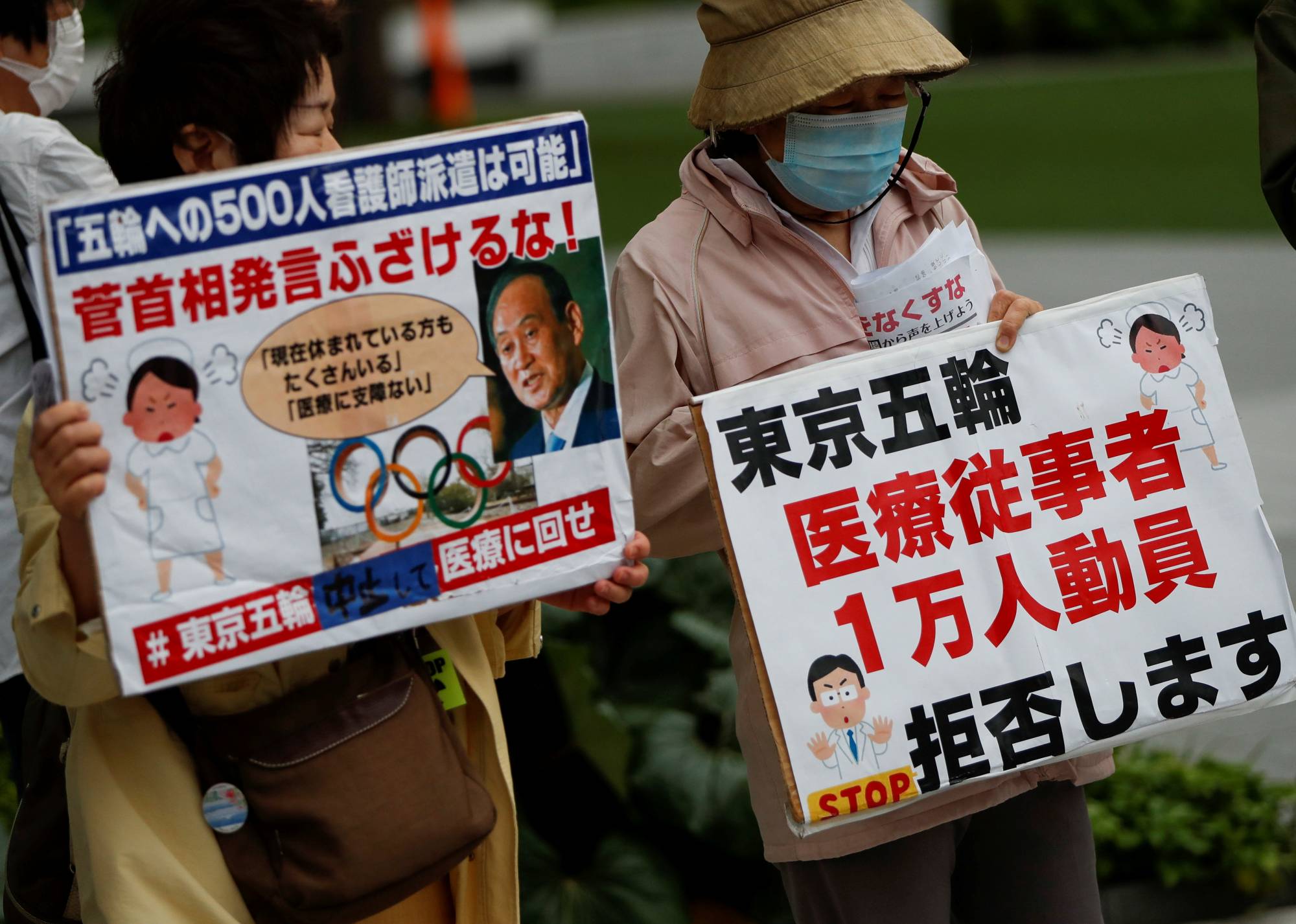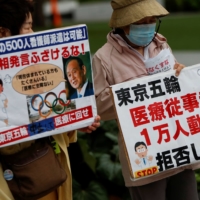The head of a doctors union in Japan warned Thursday that holding the Olympic Games in Tokyo this summer, with tens of thousands of people gathered from around the world, could lead to the development of a new “Olympic” strain of the coronavirus.
Although Japan has repeatedly pledged to hold a “safe and secure” 2020 Olympics in Tokyo after a yearlong postponement, it is struggling to contain a fourth wave of the pandemic and preparing to extend a COVID-19 state of emergency that covers much of the country.
Japanese officials, Olympics organizers and the International Olympic Committee (IOC) have all vowed the Games will go ahead, albeit under strict virus prevention measures. Foreign spectators have already been banned, and a decision on domestic audiences is expected next month.
But even with these steps in place, worries remain about the influx of athletes and officials into Japan — where the vaccination process remains glacially slow and just over 5% of the population have been inoculated.
With people from over 200 nations and territories set to arrive in Tokyo, it will be dangerous to host the Games in July, said Naoto Ueyama, head of the Japan Doctors Union.
“All of the different mutated strains of the virus that exist in different places will be concentrated and gathering here in Tokyo. We cannot deny the possibility of even a new strain of the virus potentially emerging after the Olympics,” he told a news conference.
“If such a situation were to arise, it could even mean a Tokyo Olympic strain of the virus being named in this way, which would be a huge tragedy and something that would be the target of criticism, even for 100 years.”

The Asahi Shimbun, an official partner of the Tokyo Olympics, carried an editorial on Wednesday urging for the games be cancelled, but former IOC vice president Dick Pound said later in the day the sports extravaganza should and would go ahead.
The government is currently preparing to extend a state of emergency across much of the nation, originally set to be lifted on May 31, most likely well into June, officials have said, just weeks before the games are set to open on July 23.
But IOC member John Coates has said the Olympics could be held even under a state of emergency, an opinion Ueyama said was infuriating.
“In regards to these statements, the people of Japan are indeed holding great anger towards this, and this is even more the case for health care and medical professionals,” Ueyama said.
Japan’s medical system is currently under extreme stress and officials in some areas worry about potential additional strains from the games. In hard-hit Osaka, for example, 96% of the 348 hospital beds reserved for serious COVID-19 cases were in use last week.
Earlier this week the United States advised against travel to Japan, but Olympics organizers have said this will not affect the games. The White House on Wednesday said it had been assured by the Japanese government that it would keep in close contact about concerns over the Olympics.
Chief Cabinet Secretary Katsunobu Kato said Japan would continue making every effort to control the virus irrespective of the Olympics.
In a sign of how uncertain the situation remains, however, Australia’s major sports leagues and Olympic hopefuls were left scrambling Thursday to make contingency plans after authorities announced a seven-day lockdown in the southern state of Victoria, to contain a COVID-19 outbreak in Melbourne.
In a time of both misinformation and too much information, quality journalism is more crucial than ever.
By subscribing, you can help us get the story right.
SUBSCRIBE NOW




